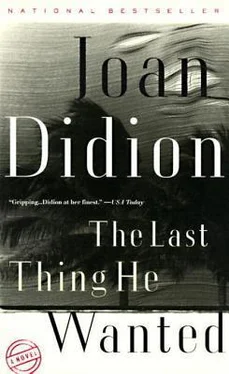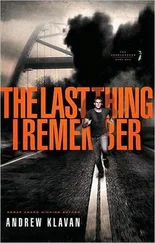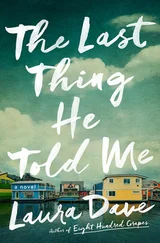There this particular note toward a lead skids to an abrupt stop. Scratched in pencil after the typed words “municipal court” is a comma, then one further penciled clause:
a job he owed to his wife’s well-placed relatives in the Irish wards (??CH “wards”) south of Market Street.
More false starts:
The son of a parochial school teacher and a minor city official in San Francisco, Treat Austin Morrison enrolled at the University of California at Berkeley when it was still offering a free college education to any qualified California high school graduate who could scrape up the $27.50 (??CH) registration fee plus whatever little he or she could live on. The man who would later become America’s man-on-the-spot in the world’s hottest spots, ambassador-at-large with a top-secret portfolio, earned part of his college costs by parking cars at the elite Hotel Claremont in Oakland, the rest by
Treat Austin Morrison may have been Saturday’s hero on the football field (XXX BETTER LINE TK), the University of California’s own All-PAC 8 (??CH) quarterback, but Saturday night would find him back in the kitchen at the exclusive Phi Gamma Delta house, where he paid for his room and board by hashing, washing dishes and waiting table for the affluent party animals who called themselves his fraternity brothers and from whom he borrowed the textbooks he could not afford to buy. The discipline developed in those years stands him in good stead as
T.A.M. was raised an only child
T.A.M., the only son and during most of his formative years the only living child of a
T.A.M., the only son and after his older sister’s suicide the only living child
There are pages of such draft notes, a thick sheaf of them, most of them uncharacteristically (for me) focused on the subject’s early deprivations and childhood pluck (uncharacteristically for me because it has not been my actual experience that the child is father to the man), all of them aborted. I see now that there was a clear common thread in these failed starts, that I was trying to deal with something about Treat Morrison that continued to elude me: this was a man who was at the time I interviewed him living and working at the heart of the American political establishment. This was a man who could pick up the telephone and affect the Dow, reach the foreign minister of any one of a dozen NATO countries, the Oval Office itself. This was a man generally perceived as a mover, a shaker, a can-do guy, someone who appeared to thrive on negotiation, on dealing, on calculation and calibration and adjustment, the very stuff that defines a successful social operator. Yet this remained someone who projected nothing so much as an extreme, even resistant loneliness, an isolation so impenetrable as to seem to demand analysis, examination, a reason why.
Treat Morrison himself appeared to have no interest in examining what I am distressed to notice I was choosing to call “his formative years.”
I would not hear from him about early deprivations or childhood pluck, nor would I get from him even the slightest clue that the traditional actors in the family drama (or, in the vocabulary into which I appear to have been sinking, the formative dynamic) had been in his case other than casual acquaintances.
“As far as I know she was regarded as an excellent teacher,” he said about his mother. “Very well thought of, very esteemed by the sisters who ran the school.” He paused, as if weighing this for fairness. “Of course she was a Catholic,” he said then.
Since this afterthought was the most specific and least remote information he had so far seemed inclined to convey, I decided to pursue it. “Then you were raised a Catholic,” I began, tentatively, expecting, if not revelation, at least confirmation or correction.
What I got was zero.
What I got was Treat Morrison waiting, at bay, his fingers tented.
“Or were you,” I said.
He said nothing.
“Raised a Catholic,” I said.
He aligned a square crystal paperweight with the edge of his desk blotter.
“Not to say that I entirely disagreed with many of the pertinent precepts,” he said then, “but as far as the whole religious business went, it just wasn’t an area that particularly interested me.”
“He was very well liked around the courthouse,” he said about his father. “As far as I know.”
“It was something that happened,” he said about the death of his sister at age nineteen. “I was twelve, thirteen years old when it happened, there were the seven years between us, seven years at that age could be a lifetime, to all intents and purposes Mary Katherine was someone I barely knew.”
“For all anyone knows it was an accident,” he said when I tried to follow up on this subject. “She was watching the seals, the surf came up and took her, Mary Katherine never had any coordination, she was always in the emergency room, if she wasn’t breaking her ankle she was dropping a bicycle on her leg or knocking herself out with a tetherball or every other damn thing.”
“I guess I didn’t see any useful reason to dwell on that,” he said when I suggested that very few people who get accidentally taken by the surf while watching the seals happen to have mailed goodbye notes to (although not to their mother or father or brother) three former teachers at Lowell High School and a former boyfriend who had recently left to go through OCS at Fort Lewis, MISSION TEEN A HOMEFRONT CASUALTY, the headline read in the San Francisco Chronicle the morning after the letters began to surface. I had found it on microfiche, LOWELL GRAD WROTE FINAL DEAR JOHN. “There you see the goddamn media again,” Treat Morrison said about this. “Goddamn media was meddling even then in something they couldn’t possibly begin to understand.”
“Which would have been what.” I recall trying for an offhand delivery. “What was it exactly that the media didn’t begin to understand.”
Treat Morrison said nothing for a moment. “A lot of people get some big mystical kick out of chewing over things that happened forty, forty-five years ago,” he said then. “Little sad stories about being misunderstood by their mother or getting snubbed at school or whatever. I’m not saying there’s anything wrong with this, I’m not saying it’s self-indulgent or self-pitying or any other damn thing, I’m just saying I can’t afford it. So I don’t do it.”
I find in my notes and taped interviews only two instances in which Treat Morrison volunteered anything about his background that could be construed as personal. The first such instance is buried deep in a taped discussion of what a two-state solution would mean to Israel. Three-quarters of the way through a sixty-minute tape, at 44:19 to be exact, Treat Morrison falls silent. When he resumes talking it is not about two-state versus one-state for Israel but about having once had some pictures framed for his mother. It seemed that his mother had broken a hip and been forced to move from her house in the Mission district to a Mercy convalescent home in Woodside. It seemed that he had stopped to see her on his way to a meeting in Saigon. It seemed that she had kept mentioning these pictures, snapshots of him and his sister at a place they used to go on the Russian River. “She’d had them stuck in a mirror, she wanted them at the new place, I thought I’d get them put in a frame, you know those frames that take four or five little pictures. So fine. But when I go to pick it up, the clerk has written on the package ‘kids playing by stream.’ ”
47:17. A pause on the tape.
“So that was a lesson,” he says then.
Actually I knew immediately what the lesson would have been.
I had been working this row long enough to make the inductive leaps required by Treat Morrison’s rather cryptic staccato.
Читать дальше












